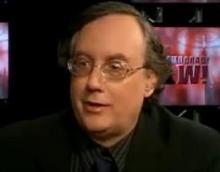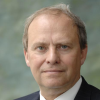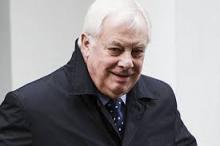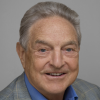Has Vladimir Putin been outflanked by the Russian far right?
Ever since Russia invaded Ukraine on February 24 this year, the Kremlin has sought by every means to minimise the reality of war. The description of the invasion as a “special operation” and persecution of anyone who dared call it by any other name is intended to underline the supposedly temporary and limited nature of the armed conflict. It seeks to blur the boundary between war and peace. This principle continued in Vladimir Putin’s speech on September 21, in which he announced a “partial mobilisation”.
But Ukraine’s fierce resistance has turned the tables. While some Russians have opposed the attack on Ukraine from the outset and publicly protested against the mobilisation that has just been declared, others, on the far right, feel that Russia is holding back too much and are increasingly calling for total mobilisation, the carpet-bombing of Ukrainian cities, and even the use of nuclear weapons.
Understanding who these ultranationalists are and what they stand for is essential if were are to decipher the Kremlin’s war strategy.
The men behind Russia’s far right
Although almost no one in Russia openly claims to be “far right”, there is nevertheless a “heterogeneous coalition” on the right of Vladimir Putin’s regime comprising orthodox fundamentalists, various shades of opposition nationalists (ranging from “national-democrats” to neo-Nazis), so-called “patriotic” militias, military bloggers (milbloggers) and Donbas veterans. The latter’s figurehead, Igor Girkin, also known as Strelkov (“shooter”), briefly served as “minister of defence” of the self-proclaimed Donetsk People’s Republic in 2014.
This political fringe has no parliamentary representation. Vladimir Zhirinovsky’s (1946-2022) misnamed Liberal Democratic Party (LDPR) was undoubtedly ultranationalist in the 1990s but was later incorporated, alongside the Communist Party, into the puppet, “systemic” opposition.
The Kremlin has also banned many far right-wing movements it considered dangerous or violent on the grounds of “extremism” and denied permission to nationalist opposition parties to formally register.
However, the regime tolerates, if not encourages, the presence of these movements’ spokespersons in the Russian media on the condition they are loyal to it. With the exception of a handful of figures opposed to the war, Russia’s far right variously commended it for restoring Russia’s greatness, emancipating it from the West (and its allegedly decadent values) and, above all, defending the “Russian world”.
While most of these radicals welcomed the announcement of a partial mobilisation by Vladimir Putin, with some even recognising within it a “sign of Providence”, a good number nevertheless claimed it was too little, too late.
Calls for all-out war
The withdrawal of Russian armed forces from the vicinity of Kyiv in late March 2022 and the ensuing series of military failures in several conflict zones have exposed the Russian military command, its Defence Minister Sergei Shoigu, and the Russian political leadership to fierce criticism. As a result, nationalists are currently urging the Russian state to hit Ukraine harder. In their view, it is time to end the “special operation” and move on to a “total war”.
This call is common to the two main ideological branches of Russian nationalism. The first branch is of imperialist inspiration. It emphasises the greatness of the Russian state in the face of the outside world, i.e., the West, and encourages the state to exercise its domination over various spaces and populations, both Slavic and non-Slavic. Here, Russia is defined as an imperial entity dedicated to expanding its borders in the space of the former Soviet Union.
The second, ethnocentric branch is concerned above all with the interests of the Russian people, understood in the ethnic sense of the term, both in Russia and abroad. This branch seeks to transform the Russian Federation, which it considers “too multinational”, into a Russian national state. One of the keys would be irredentism, preferably peaceful but also bellicose if necessary.
These two nationalist logics tend to converge in the context of the war in Ukraine. Russia’s current attitude towards its neighbour contains both an imperial and an ethnic element. Imperialists emphasise the power of the Russian state and its territorial expansion, while the ethnonationalists focus on the defence of Russians (or Russian-speaking Ukrainians) as an ethnic or cultural community.
For ethnonationalists, who are critical of Putin’s regime, the enemy is above all national; it is the Ukrainians and their identity, framed as “negation of Russianness”. For instance, nationalist veteran Alexander Sevastyanov insists that the war in Ukraine constitutes “the Ukrainian project’s frontal opposition to everything Russian”. Insofar as the Ukrainian people and authorities are “animated by a visceral hatred” towards the Russians, the “denazification of Ukraine and its re-Russification constitute the most pressing task”, he concludes.
Despite these differences of interpretation, both camps agree on one point: victory must be achieved at all costs, even if this means deploying the nuclear arsenal onto Ukraine. “If the choice is between a Ukrainian victory and a global nuclear war, nuclear war is preferable,” says Yegor Kholmogorov, a national-imperialist opinion journalist on Tsargrad and RT (Russia Today), who has long mediated between nationalists loyal to the Kremlin and opposition nationalists. For, in the words of ethnonationalist activist Alexander Khramov, if the Western-backed Ukraine wins this war, Russia will be broken up into “a multitude of micro-states”, and the Russian people annihilated.
Galvanised by the war, these actors call for an effective “purification” of Russian society that goes beyond the Kremlin’s statements. Members of the economic, intellectual or political elites are judged “compradores” because of their attachment to the West and the assets they hold there. Alexander Zhuchkovsky, a nationalist activist living in eastern Ukraine since 2014, goes so far as to implore the establishment of a new opritchnina, the Russian term for a terror regime introduced by Ivan the Terrible in the 16th century.
Will the Kremlin be able to channel the growing warmongering zeal? In view of the intensity of the rhetoric of the various wings of the Russian far right, backed recently by several Putin allies including the Chechen leader Ramzan Kadyrov, it is doubtful: whatever the outcome of the war in Ukraine, nationalist pressure is likely to become a serious and lasting threat to Russia’s internal stability.
Jules Sergei Fediunin, Post-doctorant au Centre d'études sociologiques et politiques Raymond Aron (EHESS), Docteur en science politique associé au Centre de recherche Europes-Eurasie (CREE) de l'INALCO, Institut national des langues et civilisations orientales (Inalco)
This article is republished from The Conversation under a Creative Commons license. Read the original article.

















